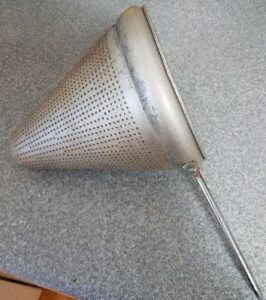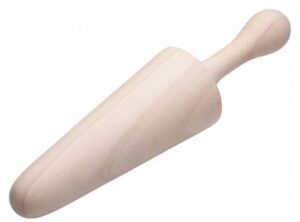There are many reasons for canning fruits and vegetables.
The biggest reason was many mouths to feed. We were not storing food for 10 years, we were storing food for the next few months.
Scalding the glass canning jars was the chore of Uncle Jacob. He was a special Crusader for the children. He always had something for the children to do and special ways for the children to have fun. Jacob was a workaholic, he worked hard, he never complained, and he was always first to volunteer while he told family stories. Uncle Jacob reminded us of his last frog gigging foray. After filing his burlap tote sack with spring frogs for frog leg delicacy dining he began to walk home with the sack over his shoulder and on his back. The frogs began to wake as some had only been stunned as the were swatted in the water. The frogs began to rebel vocally of the cramped conditions and bouncing of the sack. The croaking chorus that sounded like the frogs were in a dialog. They chimed in unison, “I’ll walk, I’ll walk…” they croaked, Uncle Jacob imitated.
Then he turned to the children and claimed he told the frogs, “No you won’t I’ll tote ya!” All the children laughed and knew frog legs were on the menu for tonight!
The black cast-iron kettles were used mostly for canning, but in off times, for scalding hogs. The kettles had to be scrubbed, filled with water and an oak fired bed of coals kept hot. Uncle Jacob did it all.
Our first canning of the season was grape jelly. Grandpa had a small vineyard, when attacked by his three daughters, five grandchildren and grandma, the grapes were harvested within the hour. With all four women in the kitchen, it was noisy, crowded but efficient. The small batch of jelly was divided four ways and the weekend was over in one day.
Our next canning adventure was always tomatoes. The commercial fields were laden with ripe tomatoes after the harvest was finished. Dad would take his truck and we filled the bed that had no containers until it was level with the sides of the bed with loose tomatoes.
Uncle Jacob had the canning jars scalded and Aunts Kay, Pauline and sister Coralee gathered jars to the kitchen. It was always easy to watch the fire but we couldn’t stay, there were tomatoes to wash, cut up and stacked into the jars. The kitchen was like a factory. The floor was slippery, the garbage can filled in a hurry, and the women told stories of past canning seasons. We kids ran around like it was the county fair, what great fun, it was canning season again!
We all brought the filled canning jars back to the kettles to be strategically placed so they didn’t break until the kettle was full. Uncle Jacob put on more firewood and the water began to boil.
All weekend long we washed tomatoes, cut tomatoes, stuffed tomatoes in jars and cooked them.
The last batch was the celebratory batch, we danced in circles holding each other because we knew great dining was ahead! TOMATO GRAVY, a staple in our houses, tomato salsa, tomato soup and Swiss steak with venison, MMM, mmm good.
Guavas were next and only Uncle Jacob knew where the wild grove was ripe,
at what time, and when we could get to them because of the wet terrain. The little truck would ease through the palmettos, the willows and the pines, until that pungent smell wafted into the truck from the 20 foot high fruit trees. The trees were ladened with fruit, some green, some yellow and some fallen.
Only firm fruit was chosen from those that fell after Uncle Jacob shook the small diameter guava trunks. The bed of the truck slowly filled as nieces and nephews, Aunts and Uncles made numerous trip to the truck from under the guava canopy. The guava smell thrilled the nostrils and permeated the air. Kids ran, gathered fruit, ate fruit, throwed fruit until caught with guava butter and seeds splattered across our backs and chests. Serious gathering began from this point on because we knew better and only intense gathering might cause our parents to forget the promised leather strap when we got home.
Back at the outdoor canning kitchen, the aunts and children divided in 3 groups as the uncles built up the oak fire under the iron kettles again.

Guava butter extractor
There were peelers, corers and colanders. The ladies knew what each family loved in guava delights. The peelers, peeled guava for guava jelly. The corers, quartered the peeled guavas and scooped out the seeds and guava butter that filled the center of the fruit. The colanders took the seeds and guava butter into a perforated colander that looked like an aluminum pointed hat, inserted a pointed wooden pestle and wound the handle in a circular motion. This cone strainer would allow all that pink guava butter to ooze out and keep the BB shaped stone like seeds inside the strainer.
Let the cooking begin. The stove top would hold pots of guava shells to be heated to a boil so the canning jars could be filled. The biggest pot smelled like heaven full of guava butter with a foam head that had to be continuously skimmed off. Each child rotated to get their share of guava foam as it cooled and formed a treat like no candy producer could ever achieve.
As the guava shells finished cooking, half were jarred and sent to the iron kettles for sealing. The other half were combined with guava butter to make guava preserves.
The jelly had to be a labor of love as after the fruit was peeled, the peelings were compressed into a pot with a little water and sugar. The stirring was endless. The jelly pot was stirred in shifts as your arm wanted to drop off with the full content in a huge pot. It wasn’t until years later that we discovered jelly could be made in the oven with no stirring.
By this time all the neighbors, even across the eight-acre lake, knew we were cooking guavas at Uncle Jacob’s house! Neighbor kids would ride for blocks just to ride by the front of the house to get a better smell.
The guava canning would last 3 days starting on Friday, Uncles Jacob, Jinks and Duane would take Friday off to insure the guava crop was put up for the year. The

wooden pestle for guavas
pantries began to fill and the cousins Wanda, Anna, Sherrie, Derrill and Steve began to dream of guava on toast, cobblers and the rare jelly.
Cleanup was never a separate chore, it was continuous until it was all done.
Later in the years, potatoes were tried in tin cans, green beans, gator, goat, turtle and miscellaneous meat the beach and Glades provided.
A real metal canner that sealed both ends required a pressure cooker we were soon to be revelated.
Little Joey squatted behind Uncle Jinks’ recliner so his Mom wouldn’t see him, while he whispered, “Uncle Jinks, you know what?”
“No Joey, What?” his Uncle replied.
“You know all them canning cans and jars we been getting ready for the traffication?”
“Yep, Joey, I remember…” uncle replied.
“Well, we went to town and somebody forgot to close the door, and you know them goats in the yard?” Joey continued.
“Yes sir, I sure do Joey, what happened?” Uncle encouraged.
“Well they got in the house and started jumping in the pantry, all them cans fell in the floor and glass jars broke and all the paper labels of the cans fell off, now we don’t know if it is gator tail, goat, tators or possum in the cans!”
“That’s terrible Joey, what are you going to do?” Unc quizzed the little boy.
“That ain’t all Uncle Jinks, some of them cans exploded when they crashed to the floor, and Stiiiiiiiiiiinnnnnnnnnnnkkkkkkk to high heavens! And Mama Cried! Joey lamented.
By this time Aunt Kay suspects clandestine visitation and hollers, “JOEY?”
Joey never told the rest of the story but the canning took a turn for different results. A trip to the library showed we needed a pressure cooker for meat and most vegetables. The metal canner and unsealed cans became a constant reminder that we should stick to water baths.
We never canned together as a family again as we moved off the family road, some just 80 miles away, some to Texas and others to Washington. The family history took different roads from then on.
Some of us still can on occasion, and our children ask, “Whatcha doing?”
The secret guava groves are long bulldozed to make room for housing projects, the tomato fields now grow houses. Somewhere on this planet a family is still learning the tribulations of Guavas, tomatoes and water baths. the guava legacy will live long in infamy. Record your canning legacy here legacytoo.com




